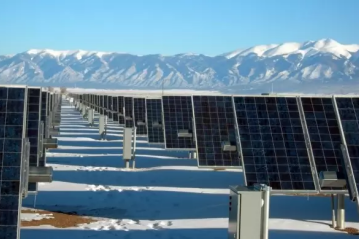
Off-grid solar systems are a great way to achieve energy independence and reduce your carbon footprint. However, to make the most of your off-grid solar system, you'll need a high-quality off-grid solar inverter. In this post, we'll explore how off-grid solar inverters work and provide tips on how to choose the best one for your system.
How do Off-Grid Solar Inverters Work?

The solar inverter is a device capable of converting DC into AC electricity. Off-grid inverters are different from on-grid inverters, which are designed to work with utility grids and don't have the ability to store excess energy in batteries.
Off-grid inverters are not connected to the grid. The inverter also manages the charging and discharging of your battery bank, ensuring that you have a steady supply of electricity even when the sun isn't shining.
How to Choose the Best Off-Grid Solar Inverter?
Choosing the best off-grid solar inverter for your system can be a challenge, but there are several factors to consider that can help you make the right choice. Here are some of the most important factors to consider when choosing an off-grid solar inverter:
1. The Inverter Output Voltage
The output voltage of your inverter will depend on the electrical appliances and devices you want to power. Most off-grid solar inverters have a DC input voltage of 12V, 24V, or 48V, with corresponding AC output voltages of 120V or 240V. If you have high-power appliances, such as air conditioners or washing machines, you may need an inverter with a higher output voltage.
2. The Inverter Power Range
The power range of your inverter will depend on the size of your solar array and the amount of electricity you need to power your home or business. Off-grid solar inverters are available in a wide range of power ratings, from a few hundred watts to several kilowatts. The power rating of your inverter should be matched to the size of your solar array and the amount of electricity you need to power your home or business.
3. The Inverter Input DC Voltage
The input DC voltage of your inverter will depend on the size of your solar array and the type of solar panels you're using. Some solar panels have a lower voltage output than others, so it's important to choose an inverter that can handle the voltage of your solar panels. Additionally, if you plan on expanding your solar array in the future, you'll want to choose an inverter that can handle the increased voltage.
Conclusion
Off-grid solar inverters are an essential component of any off-grid solar system. They are responsible for converting the DC electricity produced by your solar panels into AC electricity that can be used to power your home or business.
When choosing an off-grid solar inverter, it's important to consider factors such as the inverter output voltage, power range, and input DC voltage. By taking these factors into account, you can choose the best off-grid solar inverter for your system and maximize the energy independence and cost savings of your off-grid solar system.

0 Kommentare